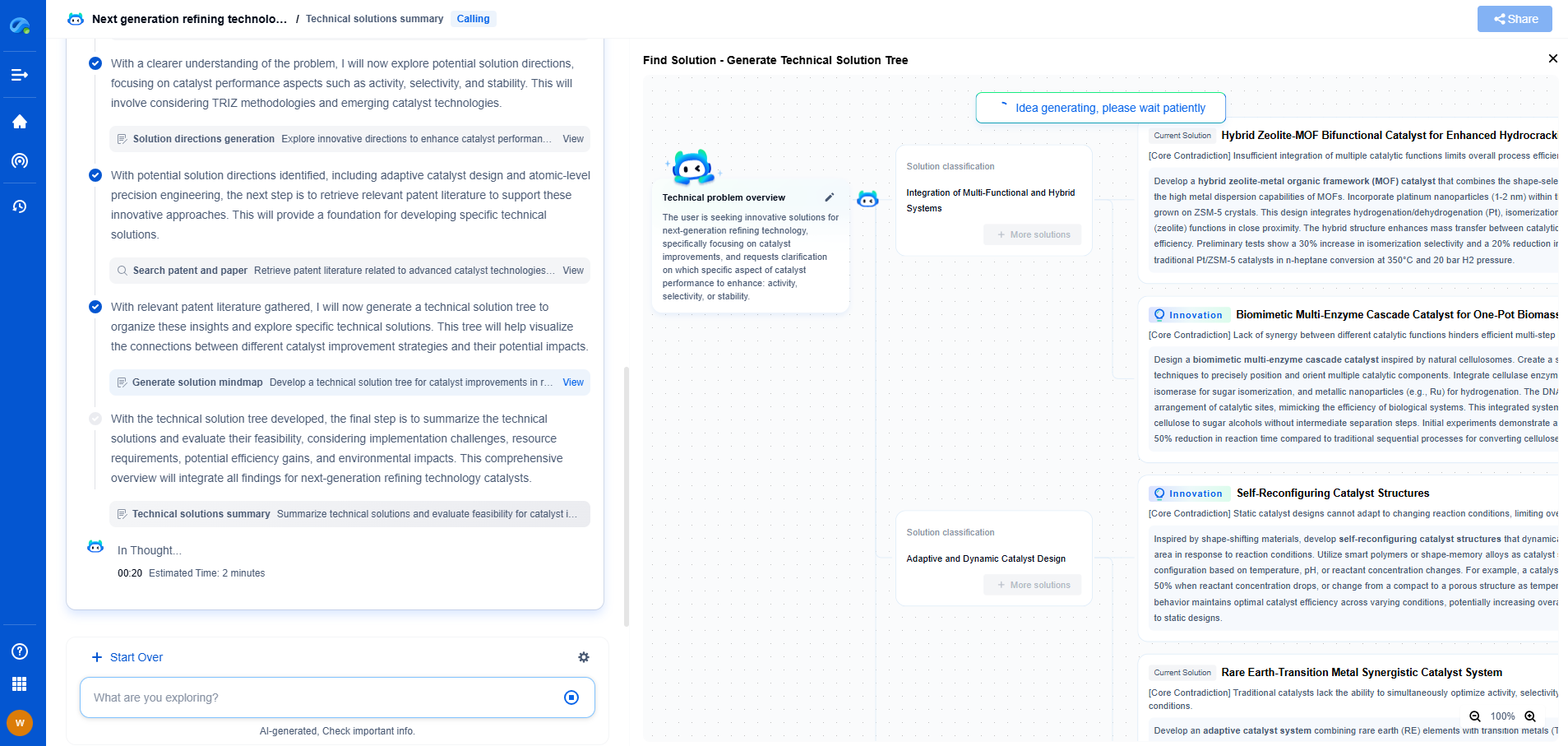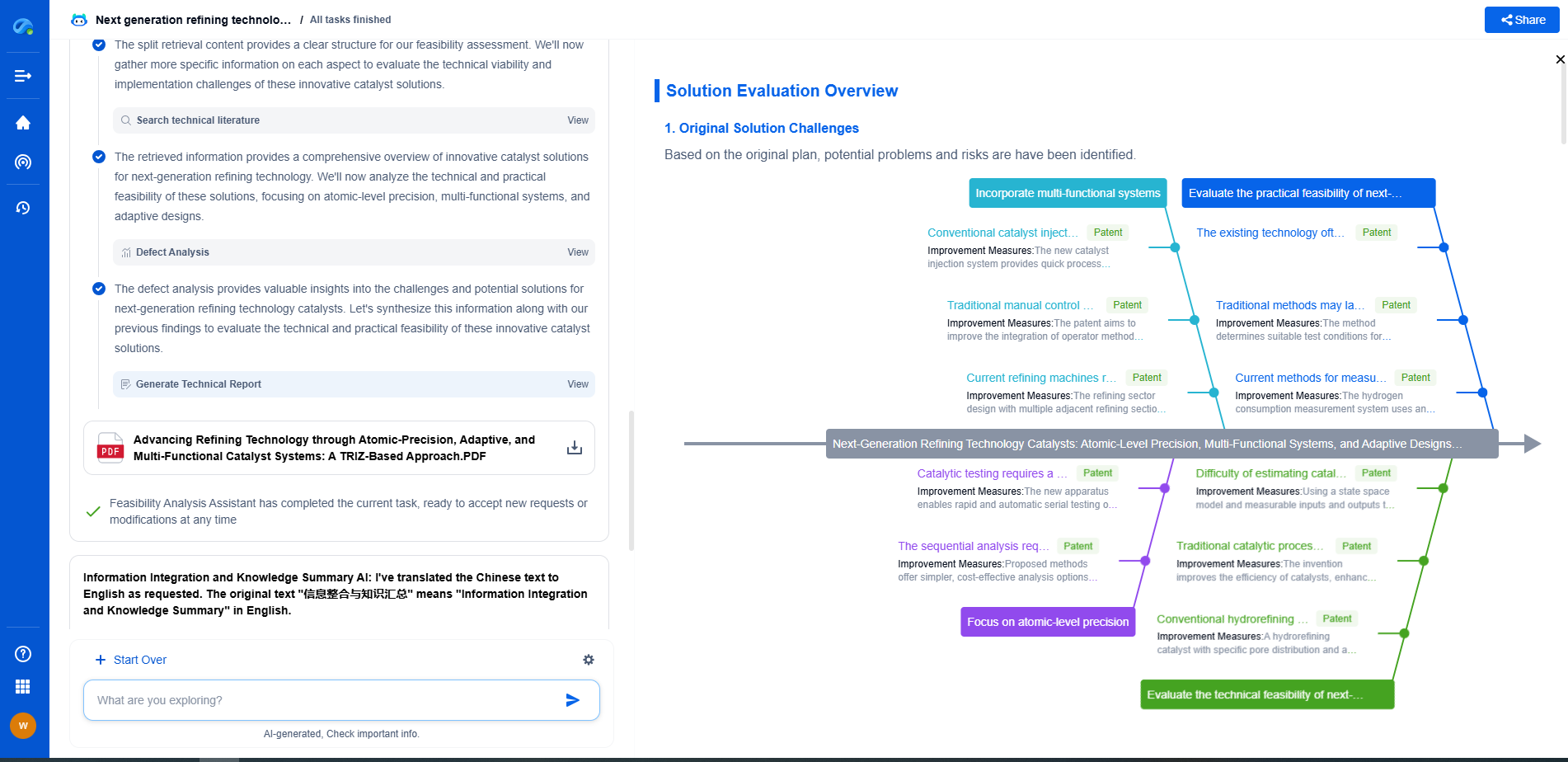Why Are Lithium-Ion Batteries Used in Power Tools?
JUN 20, 2025 |
Lithium-ion batteries have become a cornerstone in the design and functionality of modern power tools. Their widespread adoption is not coincidental; it reflects a range of benefits that these batteries offer, making them the preferred choice over older technologies like nickel-cadmium or lead-acid batteries. This article delves into the reasons why lithium-ion batteries are favored in power tools, focusing on their efficiency, versatility, and user-friendliness.
High Energy Density
One of the primary reasons lithium-ion batteries are extensively used in power tools is their high energy density. Energy density refers to the amount of power a battery can store relative to its size. Lithium-ion batteries can store a substantial amount of energy in a compact form, which means that power tools can be designed to be lighter and more ergonomic without sacrificing power or runtime. This high energy density is particularly beneficial for users who need to work in tight spaces or for extended periods.
Long Lifespan and Durability
Lithium-ion batteries are known for their longevity and durability, making them an economical choice for consumers and manufacturers alike. Unlike other battery technologies that may suffer from memory effect, lithium-ion batteries can be recharged at any time without losing capacity. This ability to endure numerous charge cycles without significant degradation means lower replacement costs and less environmental impact over the lifetime of the tool.
Rapid Charging Capabilities
Time efficiency is crucial, especially in professional settings where delays can translate into lost productivity. Lithium-ion batteries charge much faster than their counterparts, enabling users to get back to work quickly. This rapid charging capability is a significant advantage for power tool users who need to recharge frequently throughout the day, minimizing downtime and improving efficiency.
Lightweight Design
The lightweight nature of lithium-ion batteries is another compelling reason for their use in power tools. Heavier batteries can cause fatigue and strain, particularly in jobs that demand prolonged use of handheld tools. By reducing the weight of the power tool, lithium-ion technology enhances user comfort and reduces the risk of repetitive strain injuries. This lightness does not compromise the power output, ensuring tools remain as effective as heavier, battery-powered alternatives.
Environmental Considerations
As environmental concerns become increasingly important, the choice of battery technology also reflects a commitment to sustainability. Lithium-ion batteries are more environmentally friendly compared to older chemistries, mainly due to their longer life and the potential for recycling. While the extraction and processing of lithium do have environmental impacts, advances in recycling technology are steadily improving the ecological footprint of lithium-ion batteries.
Enhanced Safety Features
Modern lithium-ion batteries are equipped with advanced safety features that make them a safer choice for power tools. These batteries have built-in protection circuits to prevent overcharging, overheating, and short-circuiting, which reduces the risk of fires or explosions. The inclusion of these safety mechanisms ensures that power tools can be used in a variety of conditions with a reduced risk of accidents.
Versatility Across Applications
Lastly, the versatility of lithium-ion batteries makes them suitable for a wide range of power tools, from drills and saws to lawn equipment and beyond. Their ability to deliver consistent power output makes them adaptable to different power requirements, allowing manufacturers to design a suite of tools that can all be powered by the same battery system. This interchangeability is highly convenient for users, as it reduces the need to invest in multiple battery types and chargers.
Conclusion
Lithium-ion batteries have revolutionized the power tool industry by providing a range of advantages that enhance performance, usability, and sustainability. Their high energy density, rapid charging capabilities, lightweight design, and robust safety features create a compelling case for their continued use and development. As technology advances, it is likely that lithium-ion batteries will continue to play a pivotal role in powering the tools that build and maintain our world.
Accelerate Breakthroughs in Fuel Cell and Battery Innovation—with the Power of AI
From solid-state battery breakthroughs to high-efficiency hydrogen fuel cells, keeping pace with fast-evolving chemistries, global patent landscapes, and emerging application pathways is an ever-growing challenge for R&D and IP professionals.
Patsnap Eureka, our intelligent AI assistant built for R&D professionals in high-tech sectors, empowers you with real-time expert-level analysis, technology roadmap exploration, and strategic mapping of core patents—all within a seamless, user-friendly interface.
Whether you're optimizing cathode formulations, evaluating electrolyte stability, or navigating the crowded patent space around battery pack design, Eureka empowers you to move faster and with greater confidence.
Start your journey with Patsnap Eureka today—streamline your research, enhance decision-making, and power the future of energy with AI-driven clarity.
- R&D
- Intellectual Property
- Life Sciences
- Materials
- Tech Scout
- Unparalleled Data Quality
- Higher Quality Content
- 60% Fewer Hallucinations
Browse by: Latest US Patents, China's latest patents, Technical Efficacy Thesaurus, Application Domain, Technology Topic, Popular Technical Reports.
© 2025 PatSnap. All rights reserved.Legal|Privacy policy|Modern Slavery Act Transparency Statement|Sitemap|About US| Contact US: help@patsnap.com

